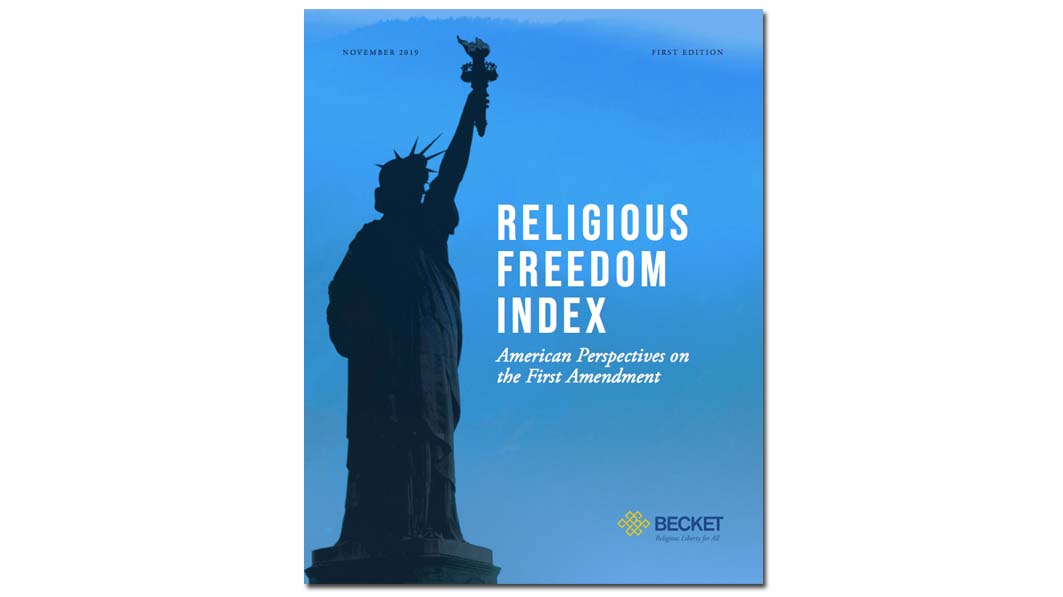A new survey and analysis of public support for various aspects of religious freedom in the United States was recently released by the Becket Fund for Religious Liberty (Becket), one of the nation’s premier public interest law firms dedicated to our First Amendment’s guarantee of this core right.
The report, entitled 2019 Religious Freedom Index: American Perspectives on the First Amendment, surveyed a nationally representative sample of 1000 American adults, and is the first annual attempt by Becket to gauge the current and ongoing state of the importance of religious liberty in America.
And the news is good. According to a Becket news release, “The central finding from this first year’s Index is that broad public support for religious freedom has survived the culture wars. After years of religious freedom being pushed to the center of polarizing debates, rather than reveal a partisan 50-50 split, at 67, the Index scored in the upper third on the scale of favorability toward robust religious freedom protections.”
The questions asked were grouped into six areas: 1) Religious Pluralism, 2) Religion and Policy, 3) Religious Sharing, 4) Religion in Society, 5) Church and State, and 6) Religion in Action.
For example, taking area 2) Religion and Policy, the survey asked respondents, “To what degree do you accept and support versus challenge and oppose”:
- The freedom for people to run their business or private organizations according to their religious beliefs.
- The freedom to believe that certain behaviors and activities are immoral, sinful, and should be avoided in our society.
- The freedom for any individual or group to believe that marriage is the union of a man and woman without having to worry about facing discrimination, penalties, or fines from government.
- The freedom for people to rely on their personal religious beliefs to guide their voting decisions – which candidates to vote for and how to vote on different issues.
- Freedom for religious groups or organizations to make their own employment and leadership decisions without government interference.
- Freedom for religious organizations and leaders to discuss political topics and to endorse or oppose political candidates.
The overall score in this area was 70% favorable, which is remarkable given the level of media and government hostility toward religion on these types of issues.
Although online polling can be skewed to one point of view or another if done by an organization with a particular viewpoint, Becket took pains to ensure that this polling was neutral and in keeping with other scientific polls. The demographic data provided with the survey shows the political party identification split as 35% Democrat, 24% Independent and 27% Republican. As for church membership, the split was 41% yes (church member) and 59% no.
For every poll that says one thing, there’s always another that supposedly proves the opposite. Even with scientific sampling, asking the same type of question in a slightly different way can yield a different result. Polling on religious freedom is no different. Pew Research Center’s recent polling on religious freedom shows that, for example, 63% of U.S. adults say the churches and other houses of worship should keep out of political matters. Note that the Pew poll didn’t ask whether churches should have the freedom to do so if they desired, like Becket’s did, which received a 70% favorable response. It’s all in how you ask the question.
Given the demographic splits in those participating in the survey, it’s clear that there is strong public support for religious freedom across all political lines and between people of faith or no faith.
That’s good news, overall.
Photo from Amazon






